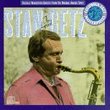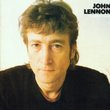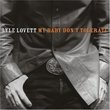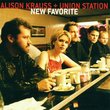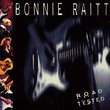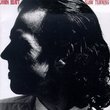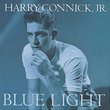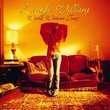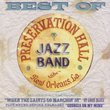| All Artists: Louis Armstrong Title: Louis Armstrong - The Hot Fives - Volume 1 Members Wishing: 0 Total Copies: 2 Label: Columbia Jazz Masterpieces Original Release Date: 2/22/1988 Re-Release Date: 10/25/1990 Genres: Jazz, Pop, Broadway & Vocalists Styles: New Orleans Jazz, Traditional Jazz & Ragtime, Dixieland, Vocal Pop, Classic Vocalists, Traditional Vocal Pop Number of Discs: 1 SwapaCD Credits: 1 UPCs: 074644404920, 074644404944 |
Search - Louis Armstrong :: Louis Armstrong - The Hot Fives - Volume 1
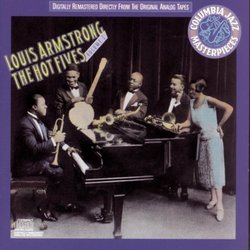 | Louis Armstrong Louis Armstrong - The Hot Fives - Volume 1 Genres: Jazz, Pop, Broadway & Vocalists
Fact: Some seventy years ago, Louis Armstrong was bigger than the Beatles. Fact: Louis' record sales provided the seed money for some of today's great communications empires. Fact: Pops' startling trumpet prowess and ingra... more » ![header=[] body=[This CD is available to be requested as disc only.]](/images/attributes/disc.png?v=15401716) ![header=[] body=[This CD is available to be requested with the disc and back insert.]](/images/attributes/disc_back.png?v=15401716) ![header=[] body=[This CD is available to be requested with the disc and front insert.]](/images/attributes/disc_front.png?v=15401716) ![header=[] body=[This CD is available to be requested with the disc, front and back inserts.]](/images/attributes/disc_front_back.png?v=15401716) |
Larger Image |
CD DetailsSynopsis
Amazon.com essential recording Fact: Some seventy years ago, Louis Armstrong was bigger than the Beatles. Fact: Louis' record sales provided the seed money for some of today's great communications empires. Fact: Pops' startling trumpet prowess and ingratiating vocals transformed the phrasing of every instrumentalist and vocalist on earth--and these are the sessions that started it all. Having performed as the second cornet with spiritual father Joe "King" Oliver's legendary New Orleans band, he turned everybody's head in New York during his stint with Fletcher Henderson's Orchestra in 1924. Then at wife Lil Hardin's insistence, he returned to Chicago in 1925, which led to the first of his supersessions for the Okeh label--fronting an all-star band assembled just for the studio. Even amid the traditional New Orleans polyphony and ensemble work of "Gut Bucket Blues," the sheer power of Armstrong's cornet pulls along the rest of the band like a locomotive (and in setting the infectious closing riff, he not only anticipates the swing era but Dizzy Gillespie's "Salt Peanuts"). By the time we get to the 1926 sessions, featuring his innovative "scat singing" on "Heebie Jeebies" and his dynamic stop-time phrases on "Cornet Chop Suey," Louis Armstrong is well on his way to transforming jazz into a soloist's art, and himself into the most influential musician of the 20th century. --Chip Stern Similar CDsSimilarly Requested CDs
|
CD ReviewsGenius, that's all, just genius 04/06/1999 (5 out of 5 stars) "This collection shows what happens when a musician has both the genius and the skill to redefine not only music, but also the way you can look at the world. I love the older Pops, but this stuff, this is transcendental. These are fugues from the delta, the voices of fertility gods telling you to get it going. This is sweet and this is fun.Miles Davis once said that nobody has played anything that Louis Armstrong didn't play first. Dizzy Gillespie said that all horn players should get on their knees and thank Pops. I even heard some author compare Pops to Albert Einstein (he must have been reading, or wrote, Art and Physics) Louis Armstrong deserves incredible respect for his trumpet playing (personally, as a horn player, I hold him in awe)in addition to the affection he enjoyed for his personality." Awesome! Gavin Mack | Carlsbad, NM | 03/26/1999 (5 out of 5 stars) "What more can be said about probably the most important recordings in the history of jazz. Without these sides, jazz may never have been given the respect, and certainly not the monetary backing, that it received going into the late '20's. Seminal is the only word I know to describe these recordings. Along with Volume 2: The Hot Fives and Hot Sevens, this summarizes Pops' early career and shows very clearly where he came from and why he became the star he was." An essential piece of jazz for the novice and connisseur ali Gavin Mack | 02/06/1999 (5 out of 5 stars) "This music is sheer joy, as Armstrong showcases his formidable talents, charisma, and passion while stretching the parameters of the genre. Kid Ory and the band are outstanding. Toss this in on Sunday morning and smile right into the afternoon."
|

 Track Listings (16) - Disc #1
Track Listings (16) - Disc #1